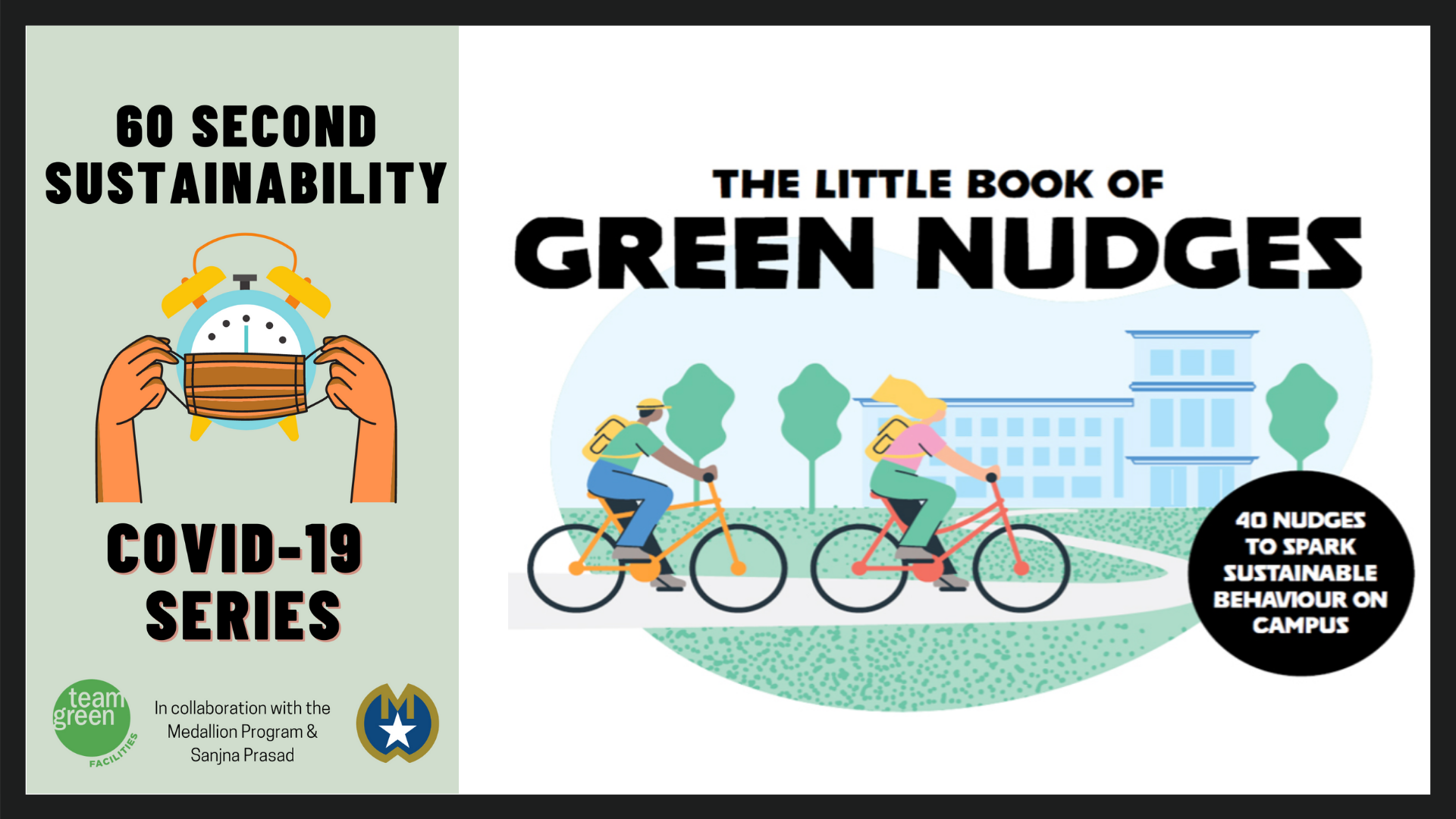University students have partnered with other University members to promote sustainability through a 60 Second Sustainability COVID-19 video series and a Little Book of Green Nudges Program. Both student-led initiatives are aimed to encourage positive behavior change during the pandemic and in everyday life.
Inspired by Facilities Team Green’s previous 60 second sustainability videos, Sanjna Prasad (Class of 2021) wanted to create a special COVID-19 video series to draw attention to environmental impacts of the pandemic. She says, “…it’s important to remain sustainable even during the pandemic and remain mindful of our environmental impact.”
Sanjna reached out to collaborate with Facilities Team Green to create the series as part of her level three Medallion project. The Medallion Program at the University “…aims to educate student leaders by providing opportunities for intentional learning, self-reflection, and skill development. Students enrolled in the Medallion Program gain a strong sense of self-awareness, work effectively with others, and become civically and socially engaged.”
The series features four videos with different tips relevant to proper waste disposal, waste minimization, and energy reduction.
- How to dispose of face masks properly
- How to recycle dining items
- Zoom style recycling sort
- Being sustainable while working from home
The short videos are being posted on UR Sustainable’s social media platforms as quick reminders to work on reducing our environmental impact as a community. As Sanjna explains, “By teaching students how to be more sustainable, we can work to reduce the environmental impact left by the school which in turn affects the community as well.”
A separate student-led initiative that promotes positive community engagement is the Green Nudges Program. Students from EcoReps, the Med Student Sustainability Team, and Eastman’s Environmental Activism Club are collaborating to promote reducing the University’s environmental impact through the use of social media. The project was initiated by Professor Karen Berger and Sustainability Coordinator Amy Kadrie who act resources and support to the students. Faculty from the Medical Center and staff from University Facilities and Services are helping to guide the content and messaging.
The program is prompted by the United Nations Environment Programme’s (UNEP) Little Book of Green Nudges, a guide to reducing campus environmental impact through behavior change. The book is based on behavioral science and nudge theory, which focuses on human actions and how to change them. The goal is to encourage sustainable behavior choices by making them “easy, attractive, social and timely.” As the guide explains, “…our brains have limited resources to make sense of a world that is complex and uncertain, which means that we use mental shortcuts that make our behaviour highly context-dependent: for example, ‘do what everyone else is doing’ or ‘take the easiest option’.” Using this science, and the fact that a lot of behavior is automatic and routine, the guide suggests making changes to the options people have in order to encourage more sustainable choices. Some examples provided by the guide include placing eye-catching recycling bins in convenient locations and using appealing descriptions for plant-based dishes.
The University has joined UNEP on an international pilot project to implement green nudges on college campuses. The University’s Green Nudges team will on focus on promoting energy reduction activities in March and sustainable diets in April. By creating personalized messaging to their peers on social media and via email, the students involved hope to evoke positive behavior changes among students and others to make a positive environmental impact.
Written by Emily Su, Class of 2022
Photo Credits: https://ifsa.net/the-little-book-of-green-nudges/

